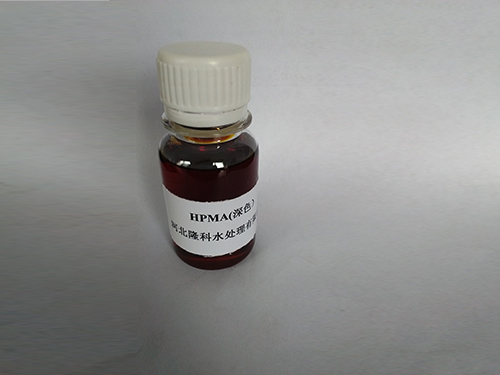Effectiveness of Cooling Tower Scale Inhibitors in Industrial Applications and Water Treatment Solutions
The Role of Cooling Tower Scale Inhibitors in Industrial Efficiency
In many industrial processes, cooling towers play a critical role in maintaining optimal operating temperatures by dissipating excess heat. However, as water evaporates in these systems, dissolved minerals can concentrate and lead to scale formation on heat exchange surfaces. This phenomenon can severely impair the efficiency of cooling systems, necessitating the use of effective scale inhibitors. This article explores the importance of cooling tower scale inhibitors, their mechanisms of action, and best practices for their application.
Understanding Scale Formation
Scale in cooling towers primarily consists of mineral deposits, with calcium carbonate, calcium sulfate, and silica being the most common offenders. When water is circulated in cooling towers, these minerals can precipitate out of the solution as the temperature rises and evaporation occurs. The resulting scale can create insulating layers on heat exchangers, reducing thermal transfer efficiency and potentially leading to equipment failures. In addition, scale accumulation can impede water flow, increasing the energy consumption of pumps and leading to higher operational costs.
The Necessity of Scale Inhibitors
To mitigate the adverse effects of scale formation, industries often turn to scale inhibitors. These chemical additives are designed to prevent or minimize scale buildup through various mechanisms. Their use is essential not only for maintaining the efficiency of cooling systems but also for prolonging equipment life, improving energy efficiency, and reducing operational downtime.
Mechanisms of Scale Inhibition
Scale inhibitors function using several key mechanisms, which include
1. Threshold Inhibition These inhibitors work by maintaining certain minerals in solution at higher concentrations than is typically possible. They prevent nucleation and crystal growth of scale-forming salts, effectively keeping the minerals dissolved.
2. Dispersing Agents These compounds prevent the aggregation of scale particles, allowing them to remain suspended in the water. This reduces the chances of scale adhering to surfaces.
3. Crystal Modification Some inhibitors alter the morphology of scale crystals, making them less likely to bond to surfaces. By changing the shape and characteristics of these crystals, they can reduce their propensity to settle on heat exchangers.
4. Sequestering Agents These agents bind with specific minerals, rendering them inactive and less prone to forming scale. This approach can be particularly effective for controlling calcium and magnesium ions.
cooling tower scale inhibitor

Choosing the Right Scale Inhibitor
Selecting the appropriate scale inhibitor is critical, as different formulations are tailored to address specific water characteristics and operational conditions. Factors to consider include
- Water Chemistry Testing the water for pH, hardness, alkalinity, and the presence of specific ions is crucial. The right inhibitor formulation will target the predominant scale-forming compounds in the system. - Operating Conditions The temperature and flow rates within the cooling tower can influence the effectiveness of certain inhibitors. Understanding these parameters helps in selecting an effective solution.
- Environmental Impact As industries increasingly focus on sustainability, the choice of scale inhibitors that pose minimal environmental risks has become paramount. Biodegradable and eco-friendly chemicals are gaining popularity in the market.
Best Practices for Application
To maximize the effectiveness of cooling tower scale inhibitors, adhering to certain best practices is essential
1. Regular Monitoring Implementing a routine monitoring program allows for the timely detection of scale formation and adjustment of chemical dosing as needed.
2. Proper Dosing Accurate dosing of scale inhibitors is critical. Too little may not provide adequate protection, while excessive amounts can result in adverse effects.
3. System Maintenance Regular maintenance of cooling towers, including cleaning and inspection, helps minimize scale buildup and complements the action of chemical inhibitors.
4. Training Operators Providing training for operators on the use and handling of scale inhibitors contributes to more effective application and management of cooling tower systems.
Conclusion
Cooling tower scale inhibitors are vital for ensuring the efficiency and longevity of industrial cooling systems. By preventing scale formation and mitigating its effects, these chemical additives promote optimal performance, reduce energy costs, and contribute to sustainable operational practices. As industries continue to innovate and seek greater efficiency, the role of scale inhibitors will only grow in importance, reinforcing their value in modern industrial applications.
-
Scale and Corrosion Inhibitors: Key to Industrial Water TreatmentNewsMay.22,2025
-
Organic Phosphate: Structure, Properties, and ApplicationsNewsMay.22,2025
-
Isothiazolinones: a versatile and versatile biocide with a wide range of applicationsNewsMay.22,2025
-
Industrial Flocculant: The Key to Optimizing Industrial ProcessesNewsMay.22,2025
-
Hydrolyzed Polymaleic Anhydride: Structure, Properties, and ApplicationsNewsMay.22,2025
-
Application of Flocculant in Water TreatmentNewsMay.22,2025





